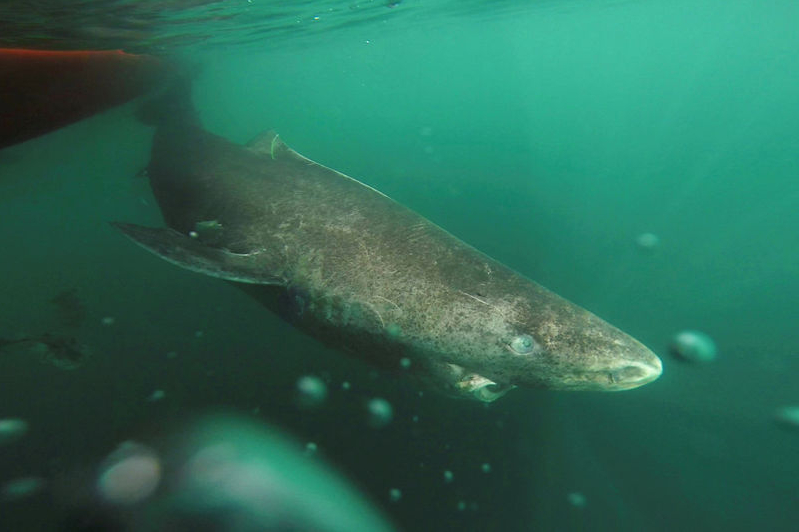
A group of researchers have discovered Greenland sharks that are over 200 years old. At this age, this marine animals were able to dethrone the bowhead whale, which was previously considered as the longest-living vertebrate.
For the study, lead author Julius Nielsen of the University of Copenhagen studied 28 Greenland sharks that were accidentally caught by fishing boats. To determine the age of these animals, the researchers analyzed their eyes, since these have lenses that form when the sharks are still in utero.
Through the radiocarbon dating, Nielsen and his team were able to determine the age of the sharks.
"The Greenland shark's eye lens is composed of a specialized material - and it contains proteins that are metabolically inert," Nielson explained to BBC.
"Which means after the proteins have been synthesized in the body, they are not renewed anymore," he added. "So we can isolate the tissue that formed when the shark was a pup, and do radiocarbon dating."
Out of all of the sharks that the researchers studied, they found eight that were over 200 years old. One of them, a large female, was estimated to be 270 to 390 years old, which means that it is way older than George Washington, who was born in 1789.
Since Greenland sharks are known to move sluggishly and aren't aggressive in the wild, it's a bit surprising that they're capable of living up to hundreds of years, especially given the number of underwater predators.
But according to the scientists, their longevity might be caused by their size. Since Greenland sharks can grow up to five meters in length, or about the size of a minivan, they can easily scare away predators just because of their size, according to USA Today.
Aside from their built, another factor that could explain their long-living characteristic is their metabolism and movement. Since these animals are slow swimmers, they don't burn that much energy like great white sharks. This means they don't have to eat every day. The researchers even said that Greenland sharks could live by just eating a big meal once or twice a year.
Also, because of their low metabolism, they can easily endure the waters in the north, where they can be commonly found.






